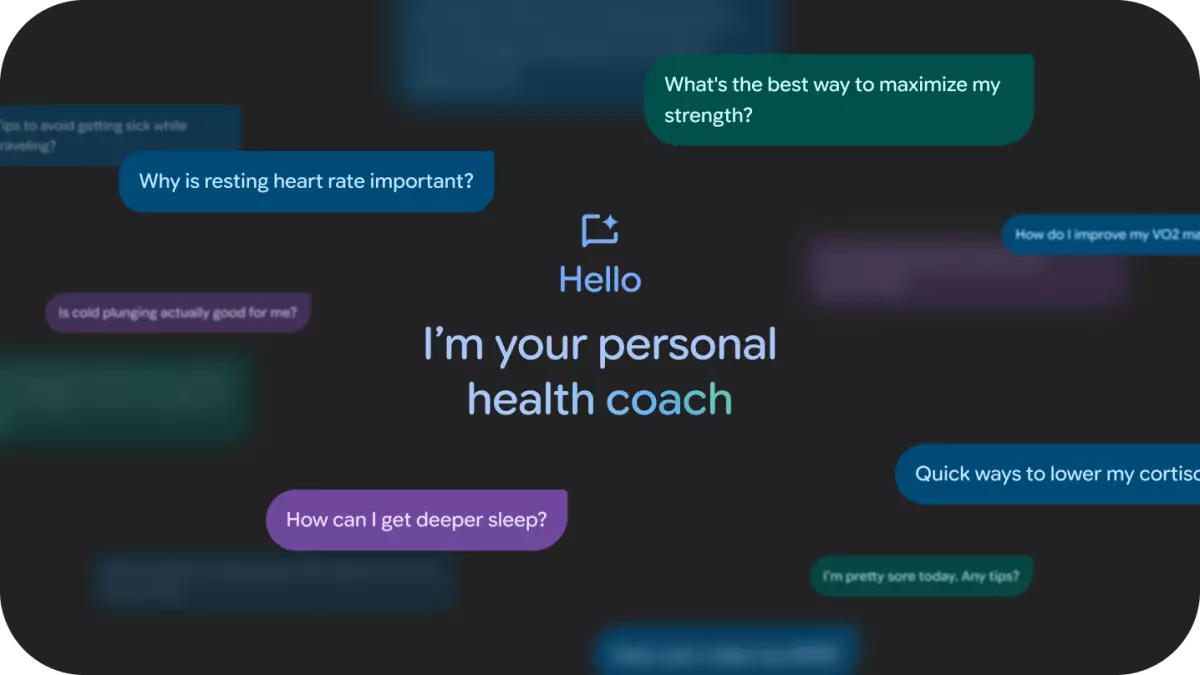Google’s latest announcement signals a seismic shift in how technology can foster individual well-being. The tech giant doesn’t just aim for incremental improvements; it introduces a fully integrated AI-powered personal health coach, embedded within Fitbit’s ecosystem. This isn’t merely a digital assistant; it’s a comprehensive wellness architect designed to adapt to every facet of an individual’s health journey. As health and fitness become increasingly personalized, Google’s approach exemplifies a vision where AI doesn’t just support but actively guides users toward optimal health outcomes.
The core innovation lies in the integration of Google’s Gemini AI model to craft a dynamic, intuitive coaching experience. Unlike typical fitness apps that offer generic workout routines or sleep tips, this AI coach learns your preferences, habits, and real-time data, continuously refining its advice. It’s designed to serve as a 24/7 health partner, almost an extension of your own consciousness, constantly analyzing your physiological signals from Fitbit trackers or Pixel Watches. By connecting with smart devices like glucose monitors and weight scales, the AI creates a nuanced understanding of your health landscape—detailing not only what you do but how your body responds.
This proactive, adaptive model signifies a shift from reactive health management to a more anticipatory, personalized strategy. Whether you’re tackling sleep issues, adjusting your workout routines in response to fatigue, or simply striving for better daily health habits, this AI personal coach promises to be your constant companion. It seeks to embed itself seamlessly into your lifestyle, with tailored routines that evolve on the fly, encouraging sustainable behaviors rooted in scientific evidence.
Intelligent Personalization: Making Fitness and Wellness Truly Yours
One of the most remarkable features is its ability to craft personalized routines based on your goals, preferences, and even your available equipment. This is where the AI coach transforms from a simple digital guide to a genuine partner that understands your unique life circumstances. For beginners or seasoned athletes, the ability to generate customized workout suggestions that consider real-world constraints—like injuries or time limitations—can be transformative.
Imagine waking up after a poor night’s sleep and receiving adjusted workout plans that accommodate your current state instead of pushing you into an ineffective routine. The AI coach’s capacity to analyze your sleep quality, duration, and stages stands out as a critical element, particularly as sleep is often undervalued in overall health. By offering insights and tailored schedules, Google positions its AI as an advocate for smarter health decisions. For example, if a user is sleep-deprived, the AI could recommend rest or lighter activity over high-intensity workouts, thereby reducing injury risk and promoting recovery.
The interactive aspect of asking personalized, science-backed questions further enhances this system’s engagement and utility. Users can inquire about whether more sleep or a workout would benefit them that day, and receive justified, evidence-based answers. This cultivates a sense of empowerment, where users are no longer passive recipients but active participants in their health journey—guided by AI that respects individual variability and scientific rigor.
Implications and Future Directions: A New Era of Wellness
Google’s integration of AI into everyday health management raises compelling questions about the future of personal wellness. The company’s focus on a holistic, adaptable approach indicates a belief that health tracking must transcend mere data collection. Instead, it must foster meaningful insights, actionable advice, and behavioral change.
The redesigned Fitbit app, with its emphasis on intuitive data visualization and a user-friendly interface, underscores the importance of accessibility in health technology. Combining advanced AI with stylish, easy-to-navigate apps broadens the appeal, making high-tech health management approachable to a diverse audience.
By enlisting NBA star Stephen Curry as a “performance advisor,” Google emphasizes that elite performance and everyday health are converging before our eyes. It signals an aspiration for its products to serve not just casual users but also those striving for peak performance—whether in sports, work, or personal life. This partnership exemplifies how the boundaries between entertainment, athletic excellence, and wellness are blurring, fostering a new ecosystem of health optimization.
Ultimately, Google’s vision is not just to sell devices or software but to embed a fundamentally smarter, more intuitive understanding of health into daily routines. As these AI-driven tools mature, they’ll challenge traditional healthcare paradigms, shifting power from reactive treatment to proactive, customized wellness strategies. Only time will reveal how effective this integration proves, but the boldness of Google’s approach undeniably signals a transformative era for personal health technology—one where AI becomes an indispensable health companion, guiding us to better, healthier lives.

